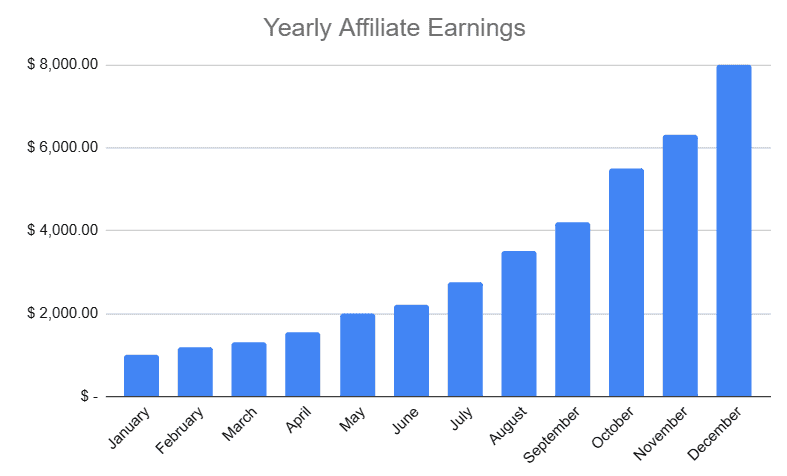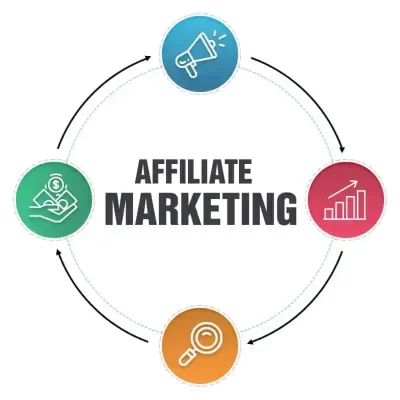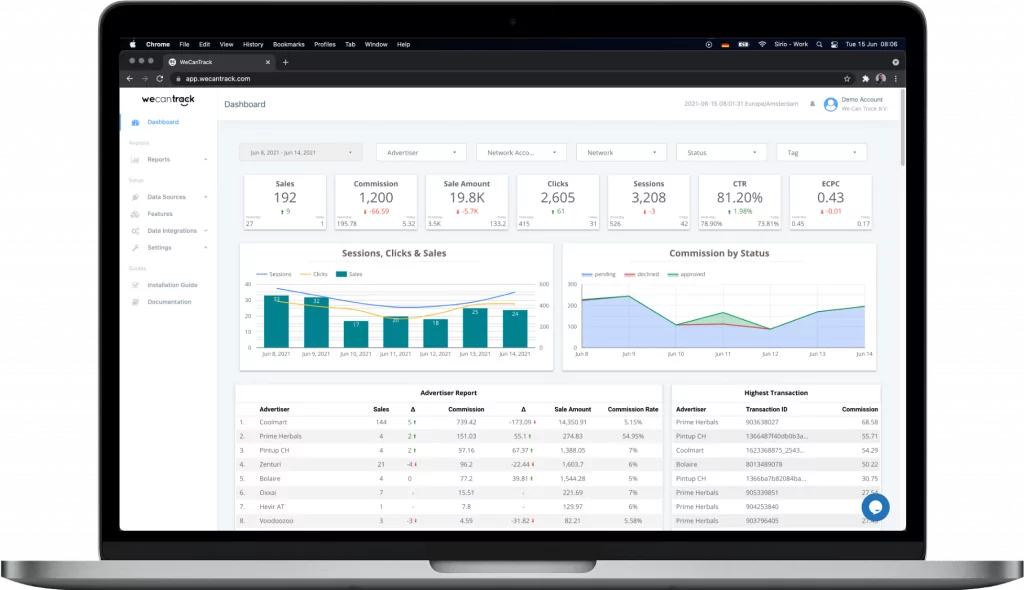Facebook affiliate marketing is a form of performance-based marketing in which you earn a commission by promoting the products and services of other companies on Facebook. There is an entire sub-niche of affiliate marketing through Facebook due to its massive reach and roughly 2.8 billion active monthly users.
Facebook allows you to build communities around specific niches, making creating attention around a specific product or service easier. This, in turn, helps you drive clicks and potential sales for the affiliate program to which you belong.
This article will cover how to leverage Facebook for affiliate marketing, set up your affiliate marketing strategy, and discuss the best practices for Facebook affiliate marketing. So, if you’re ready, let’s begin.
Understanding Facebook Affiliate Marketing
There are two primary players in Facebook affiliate marketing the affiliates and the merchants. Affiliates are responsible for creating content (posts, videos, etc.) and promoting different products or services.
The merchant is the company or business offering the opportunity to promote their products or services. They determine the commission structure and may provide you with some marketing materials to help you on your journey.
Commission Structures
There are a variety of different ways you can earn a commission as a Facebook affiliate marketer. These include:
- Pay-Per-Sale (PPS): This is the most common commission structure. You earn a commission only when someone clicks on your affiliate link and then completes a purchase on the merchant’s website.
- Pay-Per-Click (PPC): For this commission structure, you earn a commission every time someone clicks on your affiliate link, regardless of whether they make a purchase or not. This is less common but can be beneficial for driving traffic to the merchant’s site.
- Other Models: These include programs that offer a combination of PPS and PPC, as well as those that offer tiered commissions that are based on overall sales volume.
Tracking Affiliate Performance
Keeping track of your results is crucial to ensure your Facebook affiliate marketing strategy works optimally. There are a few things you need to know:
- Clicks and Conversions: The majority of the affiliate programs provide tools for tracking clicks on your affiliate links. Facebook offers an ad manager that allows you to track the performance of your advertisements. Keeping track of these metrics is vital to ensure your content receives engagement.
- Monitoring Affiliate Income: Merchants that have affiliate programs will typically have dashboards on their websites that allow you to track the commission you have earned.
- Assessing Performance: Use the data you have collected to help you understand what content resonates with your audience and what ads perform best. This is crucial for optimizing future campaigns and promotions.

Leveraging Facebook for Affiliate Marketing
Facebook is a powerful platform for promoting affiliate products and services. It offers a massive audience for affiliate marketers to reach. The platform’s engagement levels are also high, with users spending an average of 58 minutes daily on it.
Affiliate marketers can leverage Facebook to share various types of content, including posts, stories, groups, live videos, and Messenger communication. These formats allow Facebook affiliate marketers to engage with their audience in many ways and build a solid online presence.
There are two primary ways you can promote affiliate products on Facebook:
- Organic Posting: This involves creating engaging content (text posts, images, videos) related to the promoted product and sharing it strategically on your Facebook page, in relevant groups, or both. You can organically build a community around your niche and subtly weave in affiliate promotions.
- Facebook Ads: Paid advertising allows you to target a highly specific audience interested in the products you promote. You can create targeted ad campaigns to drive traffic to your website (containing your affiliate links) or even landing pages specifically designed for the promotion.

Selling expensive products means targeting the right people. Affiliates can do this by making special content, emphasizing why the product is worth it, and using customer reviews to show it's a good buy.
Creating Your Facebook Audience
Your affiliate link is completely useless without an audience to advertise your affiliate products or services. You can build this audience in many ways, but the number one way on Facebook is to create a group around the specific target audience.
Creating your own Facebook group offers an array of advantages, especially for affiliate marketers:
- Organic Reach: Unlike pages, groups provide better organic reach. Your content reaches members directly without relying on algorithms.
- Brand Advocates: Groups allow you to build a loyal community around your brand or cause.
- Free Promotions: Engaged members often share your content, leading to free promotions.
- Honest Feedback: Groups facilitate direct conversations with your audience, providing valuable feedback.
Remember, the key elements to creating a successful Facebook group include choosing a relevant and catchy name, crafting a clear and concise description, actively promoting your group, maintaining consistent engagement, and effectively moderating your group to ensure a positive and respectful environment.
With all these elements combined, you will be well on your way to creating a thriving and highly engaged group. Here you will be able to promote affiliate products that fit your specific niche as you will have built a high level of trust with your audience.
Best Practices for Affiliate Marketing on Facebook
There are a few important best practices to consider when using Facebook for affiliate marketing. These are by no means gospel, but they will definitely help you on your journey to success.
- It is important to let your audience know that you are involved in an affiliate marketing partnership if you are promoting products. This helps to create trust between you and your audience, as it shows them you are transparent.
- Avoid being spammy. Spammy tactics can deter your audience from engaging and deter potential newcomers from becoming a part of your audience. Focus on creating useful and engaging content that is relevant to the interests of your audience.
- Test and optimize your strategy. This is key to helping you find the most effective approach to marketing your affiliate program. There are various ways you can go about this, from A/B testing and analyzing metrics to making performance-based adjustments to your marketing plan.
- Staying up to date with Facebook’s policy changes is important to ensure you are complying with the platform’s guidelines. Make sure to stay up-to-date with any changes to advertising policies and other relevant rules.
Following these best practices helps affiliate marketers build trust with their audience. These tips can also help you improve your success on Facebook and maintain compliance with the various policies surrounding affiliate marketing.
Final Word
Affiliate marketing on Facebook can be very lucrative. The platform’s massive audience and its ability to target niche audiences make it the perfect platform for budding affiliate marketers. To establish trust and credibility, it is important to provide valuable content and build a genuine relationship with your audience.
Utilizing various ad formats and tracking your performance can help optimize your campaigns for better results. As we wrap up, I encourage you to continue exploring and experimenting with different strategies to find what works best for you. It’s important to stay updated with the latest trends and changes in the platform’s algorithms to stay ahead of the curve.
We also recommend deepening your knowledge by utilizing the various resources available on this topic. Keep pushing the boundaries and stay innovative to maximize your success in affiliate marketing on the platform!
Frequently Asked Questions
What is Facebook affiliate marketing?
This question addresses the basic definition of Facebook affiliate marketing, explaining how it involves promoting products or services on Facebook and earning commissions for sales or leads generated through affiliate links.
How do I get started with Facebook affiliate marketing?
This question is about the initial steps someone should take if they want to begin their journey into affiliate marketing on Facebook, including setting up a Facebook Page, joining affiliate programs, and creating engaging content.
What are the best practices for Facebook affiliate marketing?
Users often want to know about the strategies and tactics that can help maximize their success in affiliate marketing on Facebook, such as building a loyal audience, disclosing affiliate relationships, and optimizing ad targeting.
Can I use Facebook ads for affiliate marketing?
This addresses whether or not it’s permissible to use Facebook’s advertising platform for promoting affiliate links and what guidelines should be followed to avoid ad rejection or account suspension.
How much money can I make with Facebook affiliate marketing?
This is a common question for those considering affiliate marketing, as they want to understand the potential earnings and whether it’s a viable income stream.
Are there any risks or downsides to Facebook affiliate marketing?
Users might want to know about potential pitfalls or challenges associated with affiliate marketing on Facebook, such as ad fatigue, algorithm changes, or the risk of account suspension.
Do I need a large following to succeed in Facebook affiliate marketing?
This addresses whether a sizable audience is necessary to generate significant income from affiliate marketing on Facebook or if there are strategies for success with smaller followings.
How do I track the performance of my Facebook affiliate marketing efforts?
Users often want to know about tools and techniques for monitoring the effectiveness of their affiliate marketing campaigns on Facebook, including tracking links, conversion metrics, and analyzing audience engagement.
Are there any alternatives to Facebook for affiliate marketing?
Finally, users might be interested in exploring other platforms or channels for affiliate marketing beyond Facebook, such as Instagram, YouTube, or personal blogs, and understanding the differences and potential advantages of each.






